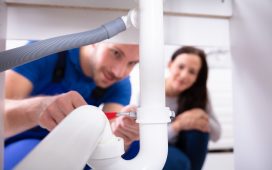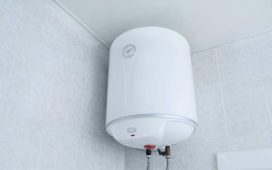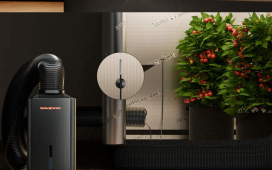In Singapore’s humid and densely packed urban landscape, bathroom waterproofing is not just a nice-to-have—it’s a necessity. Behind the pristine tiles and freshly painted walls of homes lies a hidden truth: unchecked water damage can wreak havoc on your property, leading to mould growth, structural issues, and spiralling repair costs.
Waterproofing is the invisible shield that protects your home, yet it’s often overlooked until the signs of damage become glaring. Let’s dive into why bathroom waterproofing is essential, how it works, and what every homeowner in Singapore needs to know.
Why Bathroom Waterproofing Matters in Singapore
Singapore’s tropical climate presents unique challenges for homeowners: constant humidity, heavy rains, and temperature fluctuations all contribute to excess moisture. Bathrooms, being the most water-intensive spaces in any home, are particularly vulnerable.
Here’s why waterproofing matters:
Prevents costly water leaks:
Water seepage can affect ceilings, walls, and floors, requiring expensive repairs.
Protects structural integrity:
Persistent water exposure can weaken concrete and tiles, leading to cracks and instability.
Reduces mould and mildew:
Humidity and water leaks create the perfect breeding ground for harmful mould, affecting indoor air quality.
Increases property value:
Proper waterproofing prevents long-term damage, ensuring your property remains in top condition.
According to Singapore’s Building and Construction Authority (BCA), improper waterproofing is a leading cause of property defects, especially in high-rise buildings where shared walls and ceilings amplify the problem.
Signs That Your Bathroom Needs Waterproofing

Before water damage becomes catastrophic, look out for these warning signs:
- Peeling paint or swollen walls: Indications of moisture trapped within the walls.
- Water stains on ceilings: Especially visible in flats or apartments with shared floors.
- Cracks in tiles or grout lines: These act as pathways for water seepage.
- Persistent dampness or musty smells: A telltale sign of underlying mould growth.
- Loose or hollow tiles: Caused by water undermining the adhesive over time.
Ignoring these issues allows damage to compound, turning minor repairs into costly overhauls.
How Bathroom Waterproofing Works
Bathroom waterproofing isn’t just about slapping on a layer of sealant; it’s a comprehensive process designed to stop water from infiltrating hidden spaces. Here’s a step-by-step breakdown:
1. Surface Preparation:
Existing cracks or loose tiles are repaired, and surfaces are cleaned to remove debris.
2. Application of Waterproofing Membrane:
A liquid or sheet membrane is applied to floors, walls, and areas prone to seepage.
3. Sealing Grout Lines:
Grout, being porous, is treated with a water-resistant sealer to prevent leaks.
4. Tile Installation:
Once the membrane cures, tiles are installed, ensuring proper adhesive strength.
5. Final Inspection:
The area is checked for leaks or missed spots before finalising the process.
Modern waterproofing methods, such as cementitious coatings or liquid membranes, offer superior protection and durability, making them ideal for Singapore’s humid environment.
Key Benefits of Professional Bathroom Waterproofing
Hiring a professional waterproofing specialist ensures the job is done right the first time. Here’s what you gain:
- Long-term protection: Quality waterproofing lasts 5-10 years, saving you from recurring repairs.
- Cost savings: Preventing water damage reduces repair costs by up to 70%.
- Healthier indoor environment: Eliminating mould and dampness improves air quality.
- Peace of mind: Knowing your home is protected allows you to focus on living, not repairing.
Common Waterproofing Materials Used in Singapore
Waterproofing technologies have come a long way. Some of the most effective materials include:
- Cementitious waterproofing: Durable and cost-effective, ideal for bathrooms and wet areas.
- Liquid waterproofing membranes: Flexible and seamless, perfect for sealing uneven surfaces.
- Polyurethane membranes: Highly elastic and resistant to water and chemicals.
- Epoxy grout: Provides superior water resistance compared to traditional grout.
The Cost of Bathroom Waterproofing in Singapore
Waterproofing costs depend on the size of the bathroom, the severity of the issue, and the method used. On average:
- Basic waterproofing for small bathrooms costs S$400–S$1,000.
- Larger or severely damaged bathrooms may cost between S$1,500–S$3,000.
While this may seem steep, it’s a fraction of the cost of repairing extensive water damage or replacing structural components later.
DIY vs Professional Waterproofing: Which is Better?
While DIY waterproofing kits are available, the complexity of the process makes professional services far more effective. Here’s why:
- Expertise: Professionals identify hidden leaks and weak spots you might miss.
- Quality Materials: They use industrial-grade membranes and sealants for lasting results.
- Warranty: Most specialists offer warranties, giving you added assurance.
- Time Savings: Professional waterproofing is completed quickly and efficiently.
If you’re dealing with persistent leaks or recurring dampness, professional intervention is essential.
Sustainability and Bathroom Waterproofing
In an age where sustainability matters, waterproofing is a proactive step towards greener living. By preventing water wastage, leaks, and mould:
- You reduce water usagecaused by leaks.
- Minimise building material waste, as fewer repairs are needed.
- Lower energy consumption, as drier, well-sealed homes require less ventilation to combat mould.
Singapore’s green building initiatives further emphasise the importance of water-efficient homes, aligning waterproofing practices with the city’s sustainability goals.
The Bottom Line
Bathroom waterproofing is more than just a practical fix—it’s a vital investment in your home’s safety, value, and longevity. In Singapore’s unforgiving humidity, water damage can escalate rapidly, causing structural issues, mould growth, and financial strain.
By addressing the problem early, hiring professionals, and using quality materials, you ensure your bathroom remains a safe and dry space for years to come. Remember, what you can’t see—hidden water leaks or weak grout lines—can cost you far more in the long run.
In this era of rising environmental awareness, every responsible homeowner must prioritise bathroom waterproofing, not just as a repair but as an essential act of preservation and sustainability.















